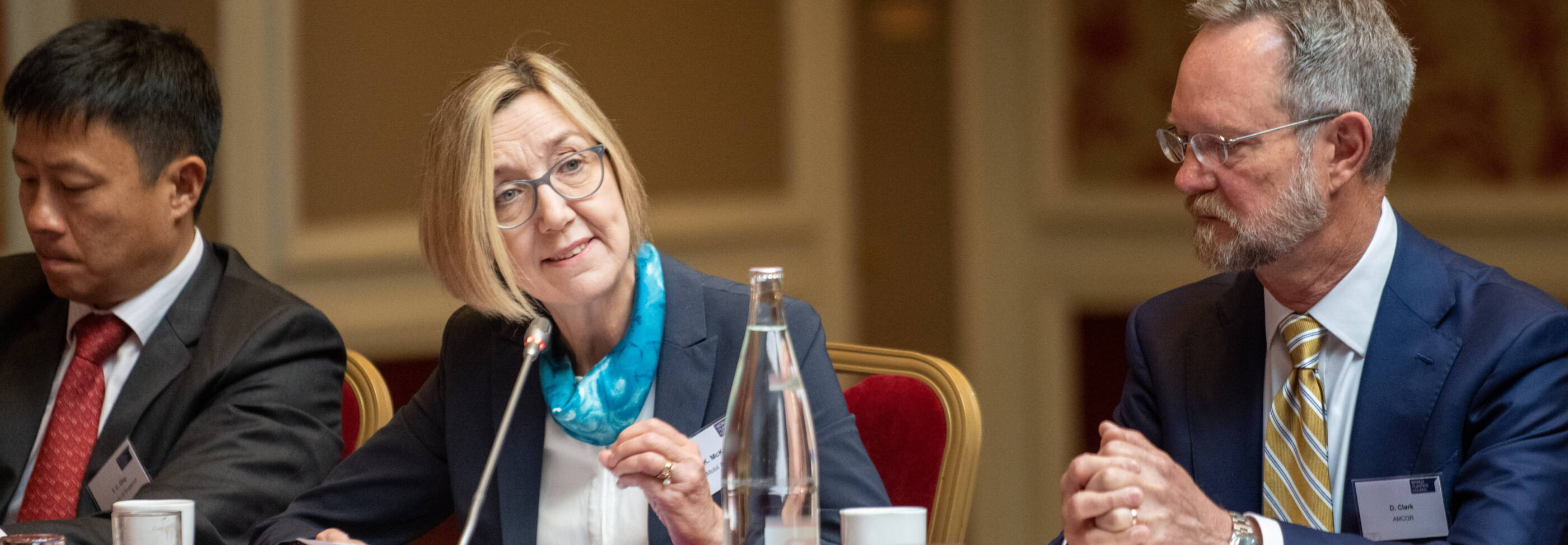selected item
How we’re helping meet the plastic waste challenge
Product Solutions President Karen McKee discussed the need for policymakers, industry, communities and consumers to work together for a lower-waste, lower-carbon future at a roundtable hosted by the World Plastics Council on May 27 in Paris. In her role as president of the International Council of Chemical Associations, she emphasized how people rely on plastics throughout the world and made the case for improving the circular economy for plastics. Her talk preceded a United Nations conference on plastic pollution that began May 29 in Paris.
ExxonMobil is strengthening the circularity of plastics through our Exxtend™ technology for advanced recycling. Our new advanced recycling facility in Baytown is one of North America’s largest, with capacity of 40,000 metric tons per year, and we have begun building a market for the certified circular polymers that Baytown makes from waste. We have plans underway for up to 500,000 metric tons per year of advanced recycling capacity by year-end 2026 around the world.
Here’s what Karen had to say:
This week, the nations of the world convene in Paris to continue their work on a global agreement that will shape how the world deals with plastic waste. With that in mind, it’s important for policymakers to listen closely to everyone who plays a role in the life cycle of plastics: designers, producers, consumers, transporters, recyclers.
Plastics enrich lives around the globe. We use them to grow and preserve food, to deliver clean water to billions of people, to treat people in our hospitals, and to make transportation and communication more efficient. They are a material of choice because their combination of strength, flexibility and light weight saves time, money and effort. Vehicles, airplanes, mobile phones, greenhouses, solar panels -- all of them rely on plastics.
And as society moves to reduce emissions, plastics will play a vital role. In many cases, they are the lowest-emission alternative, with a smaller carbon footprint than alternative materials such as paper, aluminum and glass. Plastics are critical to achieving the U.N.’s Sustainable Development Goals and building a lower-carbon future.
At the same time, far too much plastic ends up as waste in the developing world, discarded onto land and into rivers and oceans. Unmanaged waste can have significant environmental and economic impacts. Plastic waste is a significant global challenge.
We envision a world without plastic pollution. We support governments’ ambition to eliminate additional plastic pollution by 2040. We champion a global agreement to ensure access to proper waste management, eliminate leakage of plastic into the ocean, and promote circularity.
The question is: How do we get there?
We believe any global plastics agreement should include well-designed incentives to accelerate the collection of waste plastic and support the sustainable reuse and recycling of plastic products and packaging. Plastics are much too valuable to throw away, and the world’s economy should reflect that.
Plastics should be designed with reuse or recycling in mind, used appropriately, collected in efficient waste management systems, and finally transported to facilities that can turn them back into useful goods.
We in the industry are doing our part to make that happen. We’re investing substantially around the world to broaden the range of plastic that can be recycled. We’re also creating new technologies, business approaches and partnerships to enable that circularity.
All so that we can continue to enjoy the emissions reductions and other critical benefits that plastics provide, while enabling a world without plastic pollution.
Plastics have improved and are improving the lives of billions. Ending plastic waste will require a sustained effort from all of us – industry, governments, financial institutions, producers and consumers, waste management operations. We look forward to meeting the challenge.
Explore more
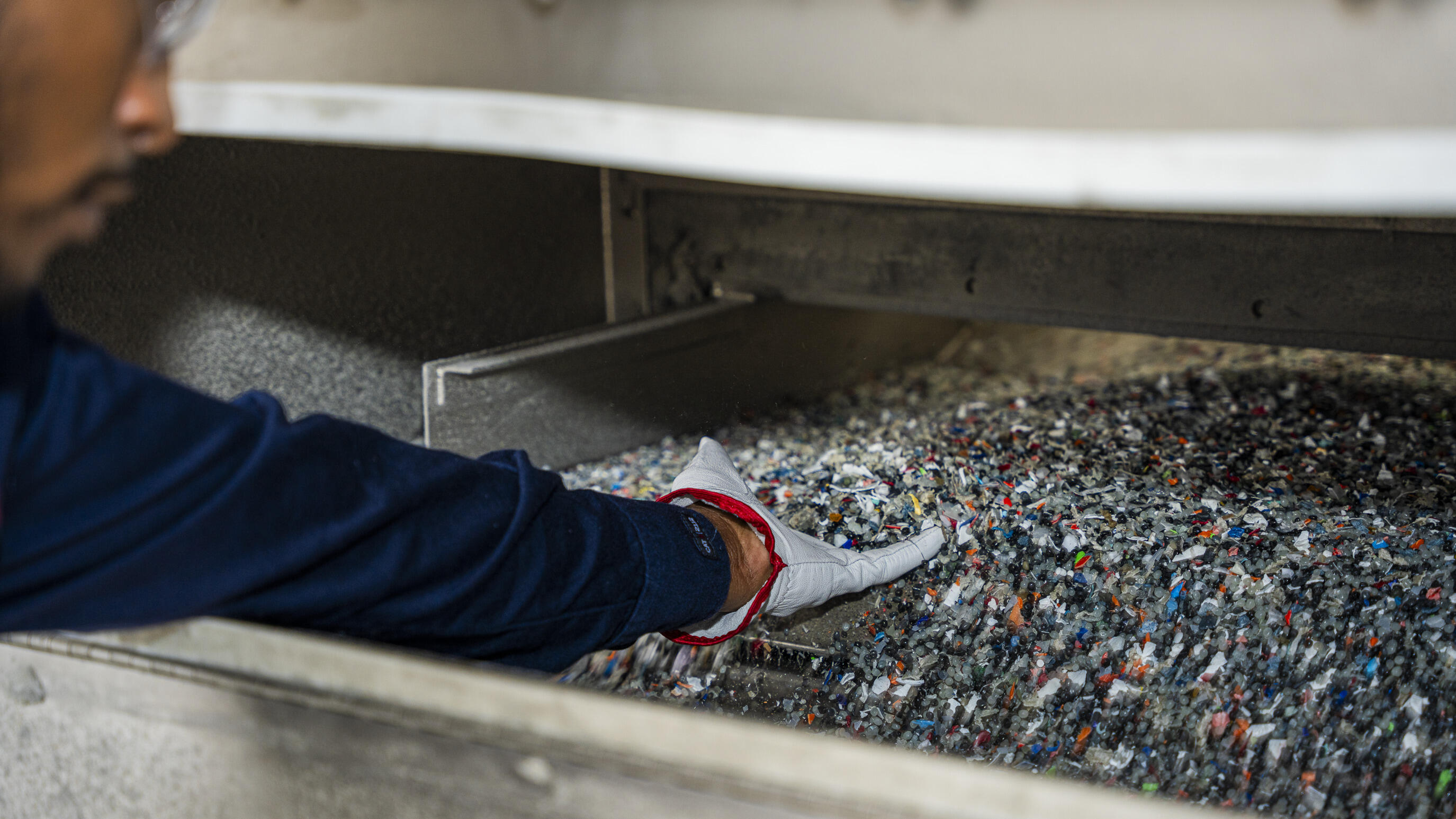
Baytown becoming one of the largest advanced recycling operations in the world
2 min read
•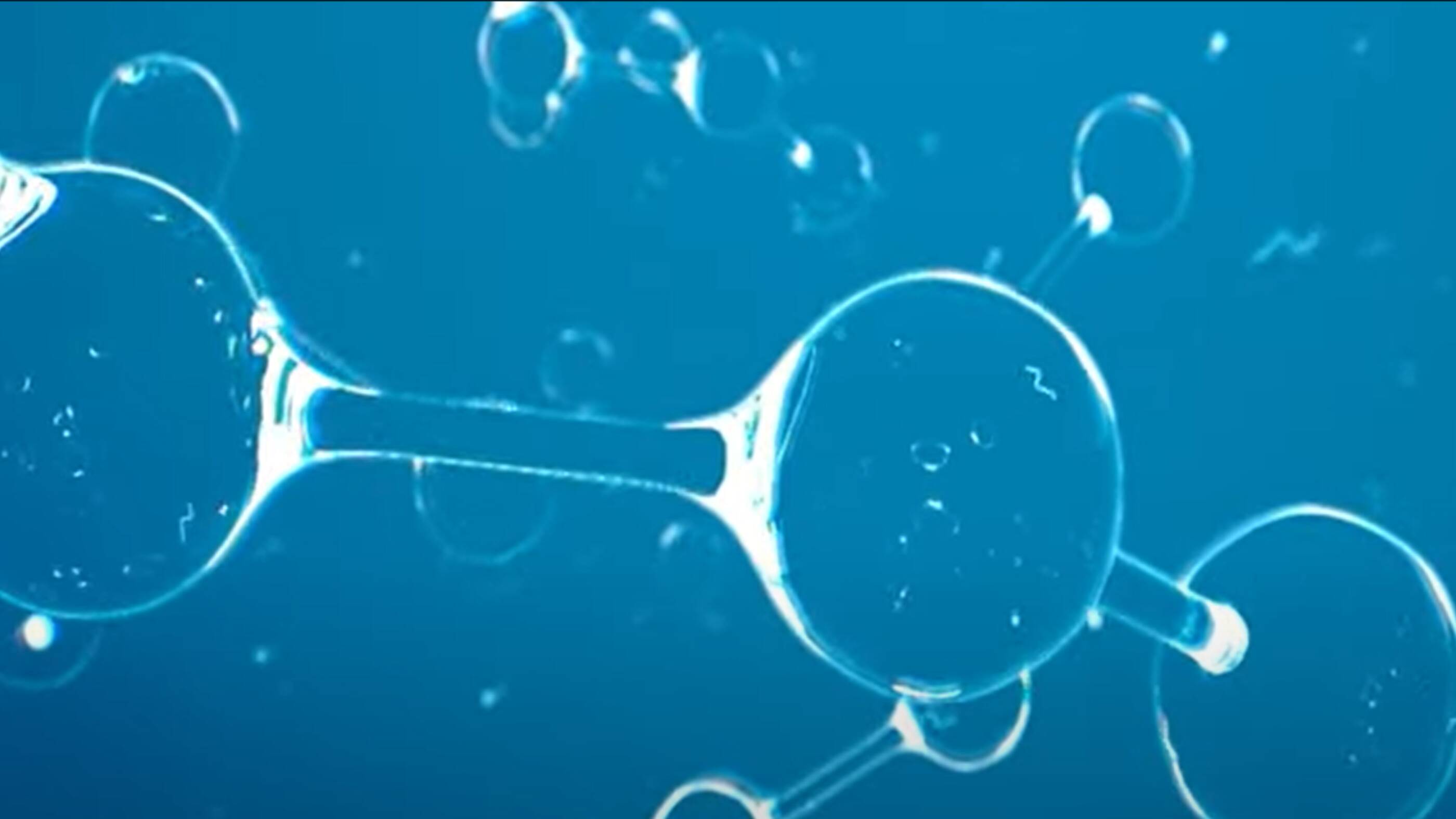
New research shows how popular plastic packaging compares to alternative materials
3 min read
•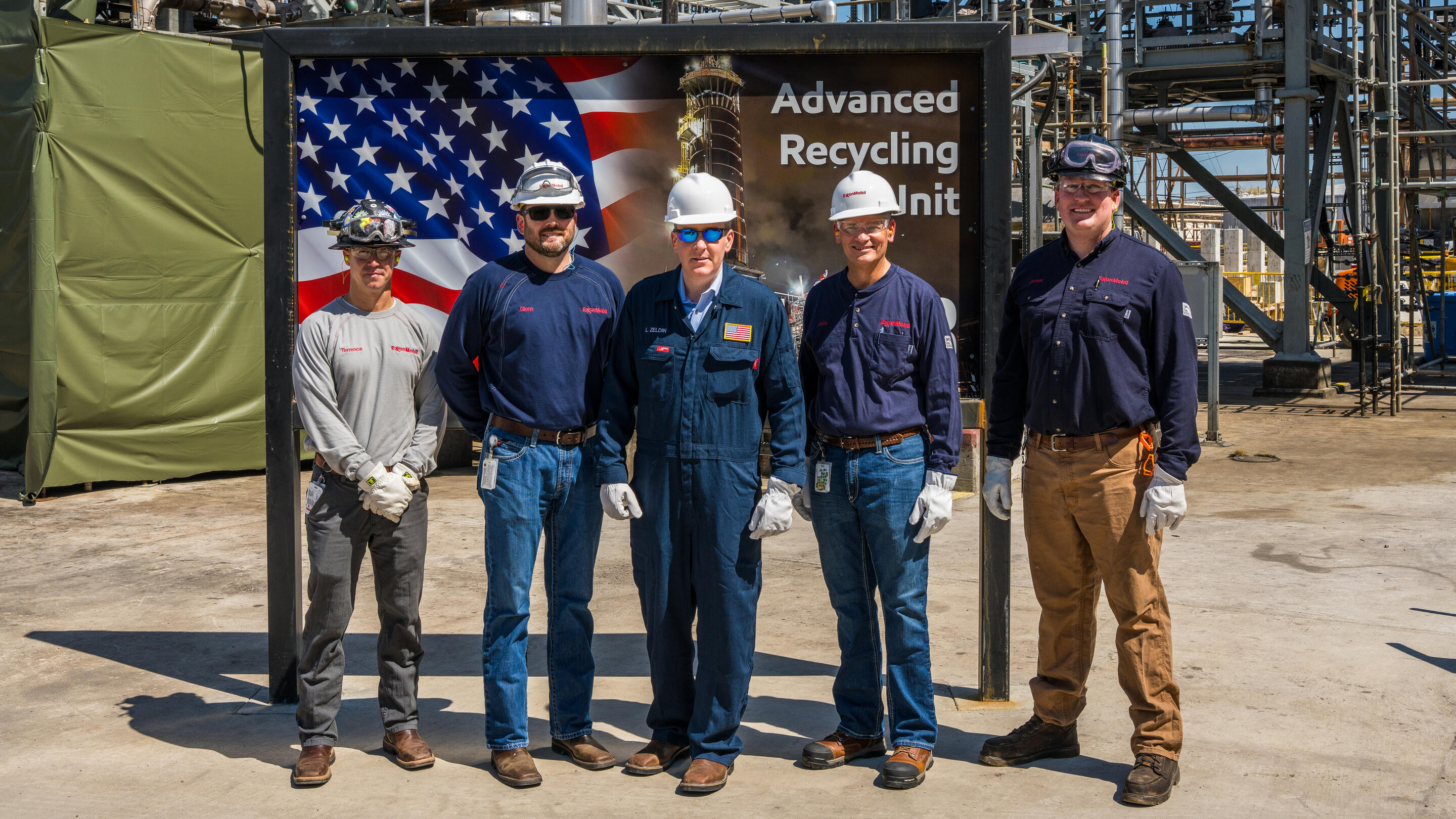
EPA Administrator Lee Zeldin tours our advanced recycling operations in Baytown
2 min read
•
We’re increasing our advanced recycling capacity to 500 million pounds annually—equivalent to nearly 25 Eiffel Towers!
2 min read
•
ExxonMobil to expand advanced recycling capacity
4 min read
•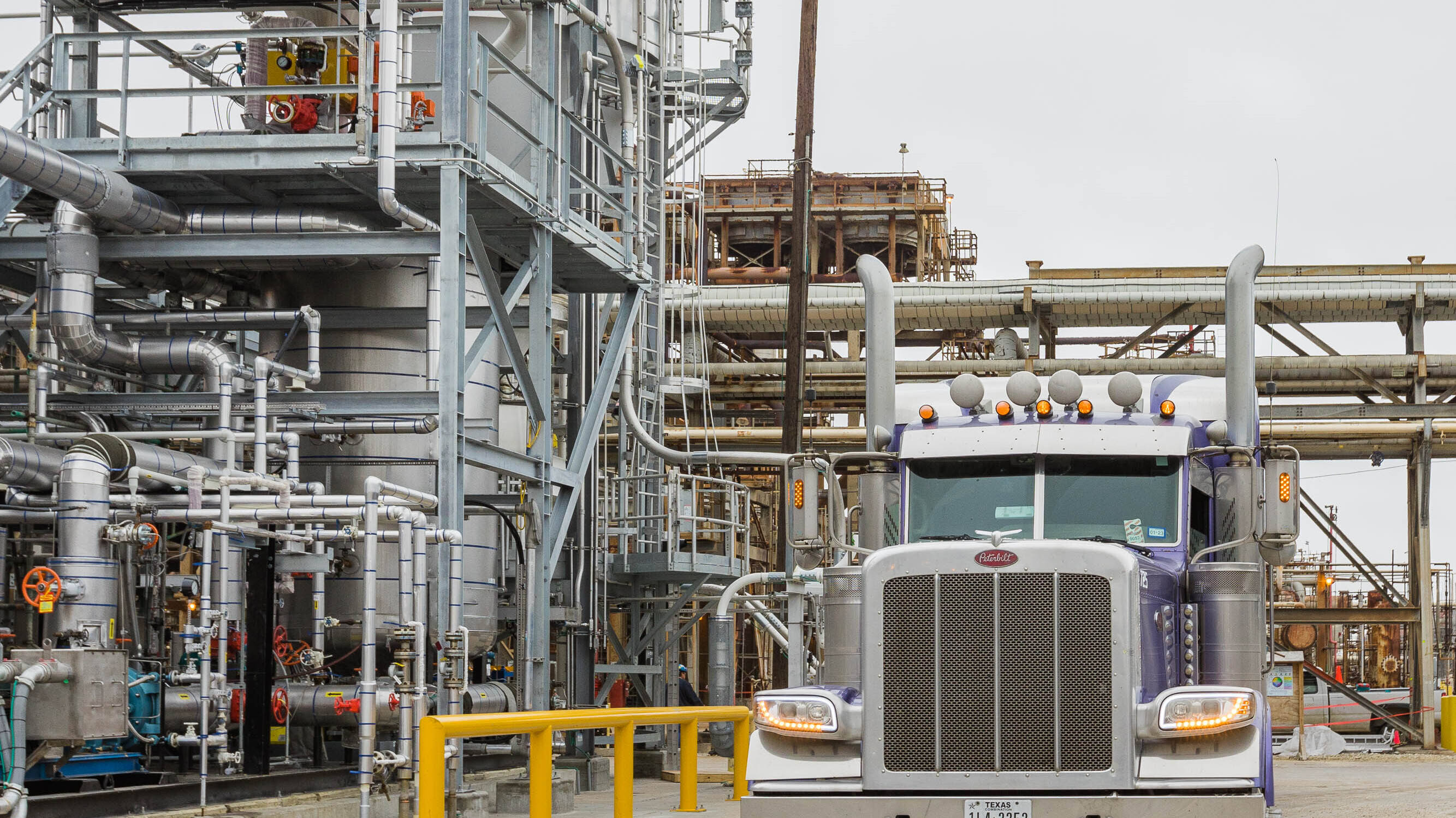
Doubling down on advanced recycling in Baytown
2 min read
•